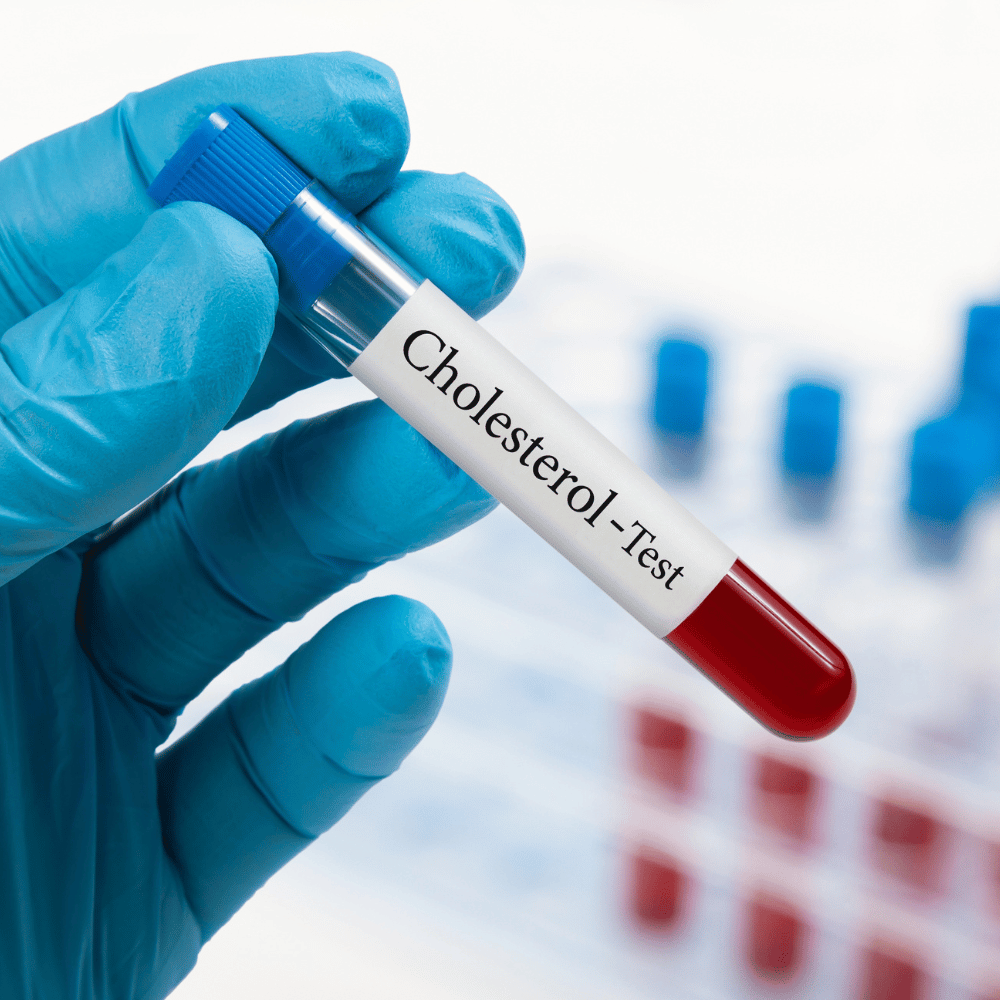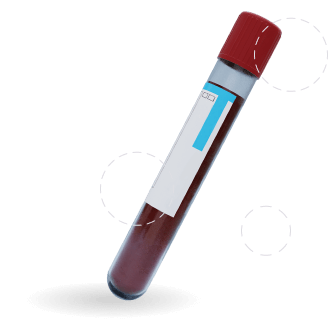
Medical Weight Loss Explained
A lot is said about medical weight loss but we are here to debunk the myths for you.
Blood Tests > Cholesterol Tests

Find Out More


A cholesterol test is a very simple blood test performed within a matter of minutes, yet it remains incredibly important. If high levels of cholesterol are left untreated, they could lead to the development of heart disease or a stroke.
Most traditional cholesterol tests only provide your total cholesterol level, which is not the most useful indicator of whether you are at risk of developing certain cholesterol-related conditions. That is why we provide our patients with a full cholesterol breakdown to help prevent and manage any health concerns we may find.

Cholesterol is a waxy, fat-like substance found in every cell of your body. Contrary to popular belief, not all cholesterol is bad. In fact, it plays a crucial role in your health by keeping your cell membranes flexible and strong, helping your skin produce vitamin D when you are in the sun, and assisting your liver in making bile, which is needed to digest and absorb fats from your food. The problem arises when you have too much “bad” cholesterol, a condition known as hypercholesterolemia. That is when it become dangerous.
A cholesterol blood test is typically designed to measures the amount of cholesterol in your blood. At Walk-in Clinic, we provide a comprehensive cholesterol profile, which is a good indicator of whether your cholesterol levels need adjustment through diet and exercise or require medication.
To sum it up, your total cholesterol is made up of LDL cholesterol (low-density lipoprotein) and HDL (high-density lipoprotein). A high level of LDL cholesterol directly increases your risk of heart disease, stroke and other diseases. A high level of HDL cholesterol, however, helps protect you against heart disease.
The third element that we test for is triglycerides. Triglycerides are the chemical form in which most fats exist in your body and are used for energy and for other body functions. However, a high level of triglycerides can also contribute to life-threatening diseases like heart disease and stroke. All the more important to know where your cholesterol and triglycerides levels are at.


For most people, there are no signs or symptoms for many years when they have high cholesterol. This is why testing is so important. However, if you experience chest pain or angina, yellowish patches forming on your skin (especially around the eyes), suffer from fatigue or feeling tired easily, struggle with shortness of breath, and have frequent headaches, you may have high cholesterol and need to be tested.
Other signs may include difficulty in digesting fatty foods, numbness in your fingers and toes, memory loss or cognitive decline, and even suffering from erectile dysfunction.
High levels of cholesterol can be attributed to the following factors:

Use our online booking engine or book your test by giving us a call.
On the online booking engine select the “appointment type” you need.
You will be seen by one of our friendly phlebotomists or trained clinicians.

Your doctor may advise you to undergo a period of fasting the night before. Usually patients are expected to fast for anything between 9 to 12 hours before the test. However, feel free to drink water as usual to stay hydrated.
Always inform your healthcare provider about any medications you are taking, as certain medications can affect your cholesterol levels. Your doctor will advise you on which medications to continue taking or to stop before your test accordingly.

There is nothing to fear, as a cholesterol test involves a regular blood test where a sample of your blood will be drawn, usually from a vein in your arm. A healthcare professional will clean the site with an antiseptic and insert a needle to collect the sample.
You may feel a slight pinch or sting when the needle is inserted, but discomfort is usually minimal and brief. The blood draw itself typically takes just a few minutes.

As soon as we receive your cholesterol results, we will send them to you via email. If you had a consultation with one of our Walk-In Clinic GPs, your Walk-In Clinic doctor will give you a call first to discuss your results and necessary follow-up procedures.
If you had a cholesterol test done without a consultation, you are welcome to take your results for interpretation to your own doctor or to book a consultation with us to discuss.
No
Hidden Charges
Transparent fees. The price you see is the price you pay.
No GP consultation
needed
No GP appointment requirement for blood tests
Established
since 1998
Experienced doctors & a professional team.
Strictly
confidential
Your medical records are kept private at all times.
We offer a wide range of private blood tests in London. Same-day appointments are available 5 days a week.
We work with experienced consultants & healthcare professionals who have received positive feedback from our patients, and with whom we have established long-term relationships.
Latest Episode
Tune in to our podcast to explore the world of healthcare and learn from distinguished special guests. We cover everything from preventative measures to cutting-edge treatments so that you can stay informed and up-to-date on health-related things.

A lot is said about medical weight loss but we are here to debunk the myths for you.

Tourist in London and need a GP? Get fast, private care for illnesses, injuries, or lost medication. No registration needed.

With NHS appointments harder to access, many people are turning to private GPs for faster, more convenient care.
Subscribe for latest updates & news


From same-day private GP and blood test appointments to visa medicals, a sexual and reproductive health clinic, and preventative health screenings, we are here to help.
Contact Us
Accepted Insurance Companies






Please note that Walk-in Clinic is a private medical centre & not an NHS service. Harley Walk-in Clinic Ltd company registration no. 07472804